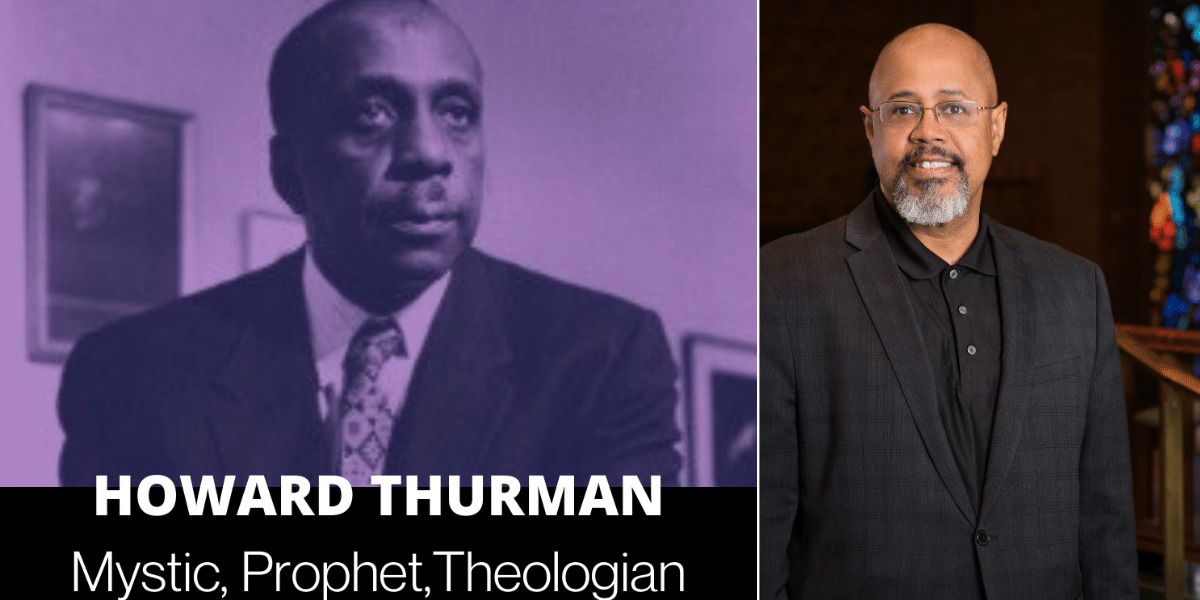
An interview with Wesley summer course developer Dr. C. Anthony Hunt
One of our online Summer Term courses in 2020 is "Howard Thurman: Mystic, Prophet, Theologian," taught by Dr. C. Anthony Hunt.
Dr. C. Anthony Hunt is a Dr. Martin Luther King Jr. scholar and an adjunct faculty member at Wesley Theological Seminary. He also serves as Senior Pastor, Epworth Chapel UMC in Baltimore and as Professor of Systematic, Moral and Practical Theology and Dunning Permanent Distinguished Lecturer at The Ecumenical Institute at St. Mary's Seminary and University, Baltimore, MD.
A prolific scholarly author, Dr. Hunt is the author of many peer-reviewed articles and 10 books, including "Blessed are the Peacemakers: A Theological Analysis of the Thought of Howard Thurman and Martin Luther King, Jr" (2005), now in its fourth printing and a standard text used in academic studies on King and Thurman around the world. His most recent monograph is "Come Go with Me: Howard Thurman and a Gospel of Radical Inclusivity" (2019). He has taught many courses and seminars on Thurman's life and teachings.
Dr. Hunt described his upcoming online course as "an analysis of the life and writings of Howard Thurman, with particular focus on the implications of Thurman’s work on the contemporary church and society. The course will provide a foundation for the academic study of Howard Thurman, with particular focus on the historical and contemporary implications of his work and ministry within the context of spiritual theology, social justice, community-building and congregational leadership".
We spoke with Dr. Hunt to learn more about Thurman and insights into his summer class.
WTS: What are the roots of your interest in Thurman?
Dr. Hunt: I was introduced to Thurman's work while a Wesley seminarian by my pastor, Dr. Calvin Morris, who was then also a professor at Howard Divinity School.
I was "reintroduced" in a more formal way during my post-graduate and doctoral studies at St. Mary's Seminary in Baltimore. My professor Sister Rose Mary Dougherty's class on Spiritual Disciplines had us listen to Thurman and we read a great amount of his work. I became fascinated with his notions of common ground, nonviolence, and peacemaking. I decided to do my dissertation work on Thurman and Martin Luther King, Jr., and a comparative theological analysis on their notions of peacemaking.
Over the years, I've embraced Thurman's teachings on spirituality and nonviolence.
WTS:"Mystic, Prophet, Theologian" - how was it that Thurman became all three? Which title do you feel Thurman most identified with?
Dr. Hunt: All three. Luther Smith, in his seminal book on Thurman, Howard Thurman: The Mystic as Prophet, places Thurman, vocationally in the category of mystic-prophet. My assessment is that based on the breadth of his writings and work in the academy as a professor and Dean at both Howard University and Boston University, he was fully a theologian as well as mystic-prophet. In fact, he was the first African American Dean of a majority white University in the U.S. when he was appointed to Boston in 1953. And he wrote one of the most important Christological works of the 20th century, Jesus and the Disinherited. I write about the convergence of mystic-prophet-theologian in Thurman's thinking and praxis in my most recent book.
WTS: Thurman was a central if hidden figure in the Civil Rights Movement, serving as Dr. Martin Luther King's spiritual director. How did Thurman's presence in Dr. Martin Luther King's life influence him and, by extension, the Civil Rights Movement?
Dr. Hunt: Thurman was one of King's mentors, although he never taught King. As an indication of Thurman's impact on King's thinking and praxis, it's well-known that King carries two books with him at almost all times as he travelled, Paul Tillich's Courage to Be, and Howard Thurman's Jesus and the Disinherited. Both Thurman and King were profoundly impacted by the teachings and praxis on nonviolence of Mohandas Gandhi.
Registration for "Howard Thurman: Mystic, Prophet, Theologian"and all our summer courses (all online) is now open. Our Fall course registration is also open, with a mix of online and hybrid courses. Wesley Administration will move Fall courses to an all-online class format, as required by the CDC to prevent the spread of COVID-19.
You will find information on courses here. Contact Admissions with any questions you may have at (202) 885-8659 or admissions@wesleyseminary.edu or chat with our Admissions staff via UChat on the Wesley website homepage, wesleyseminary.edu.
It is possible to take courses as a non-degree student or auditor. Wesley is also currently accepting applications for Master of Divinity, Master of Theological Study and Master of Arts programs, as well as our Doctor of Ministry degree programs.
